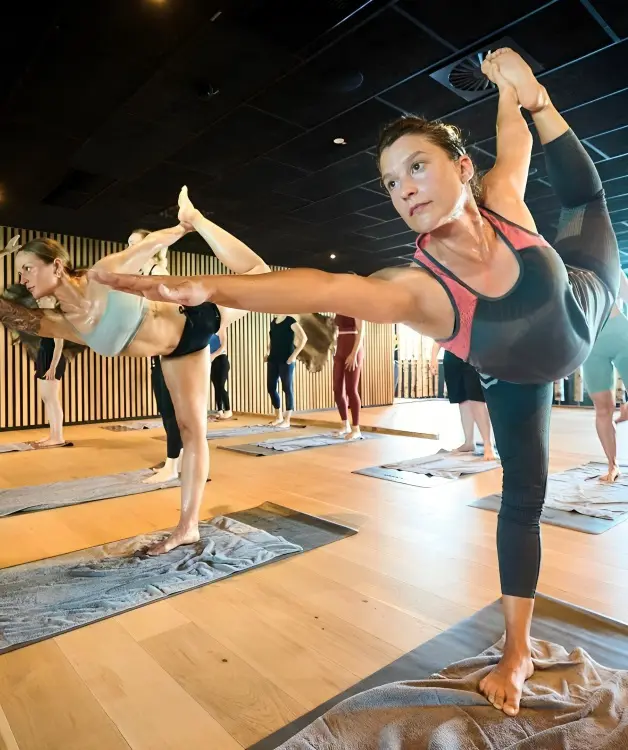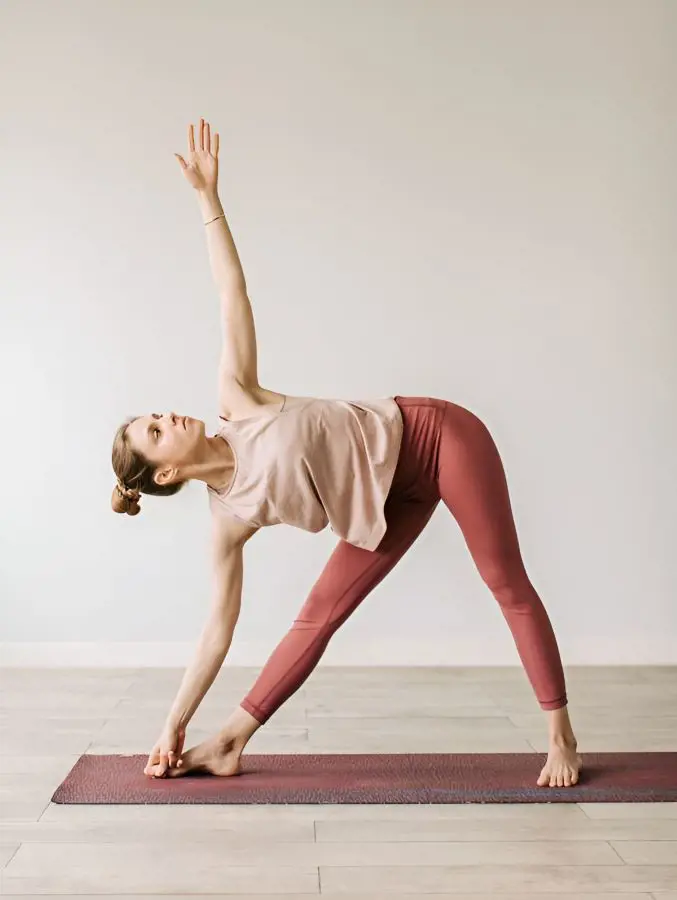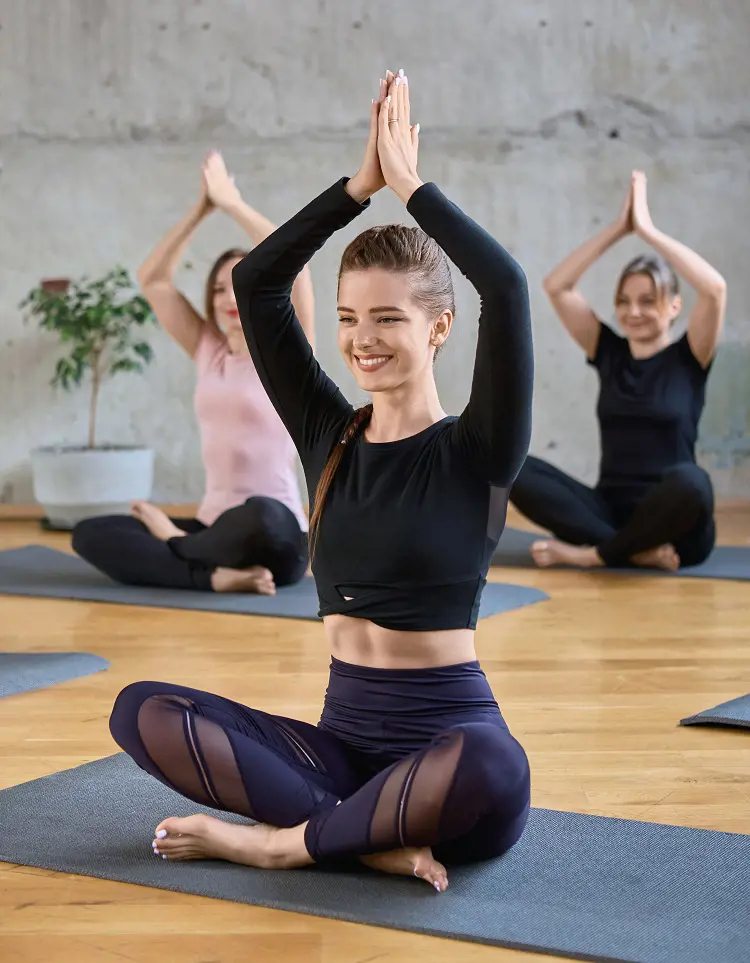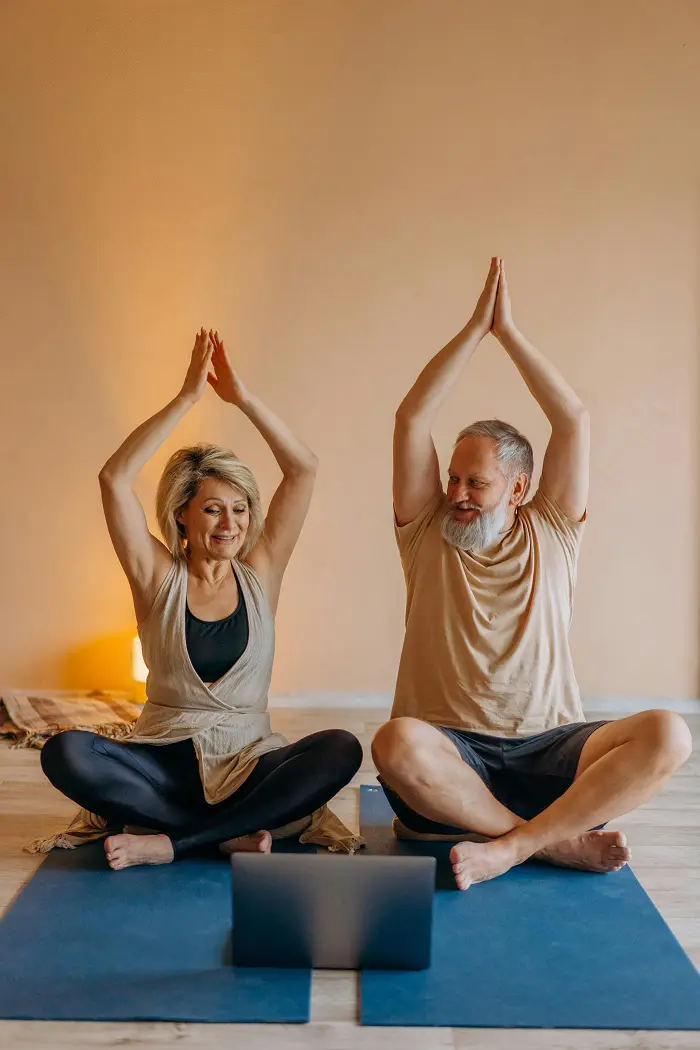14 Types Of Yoga And Their Health Benefits
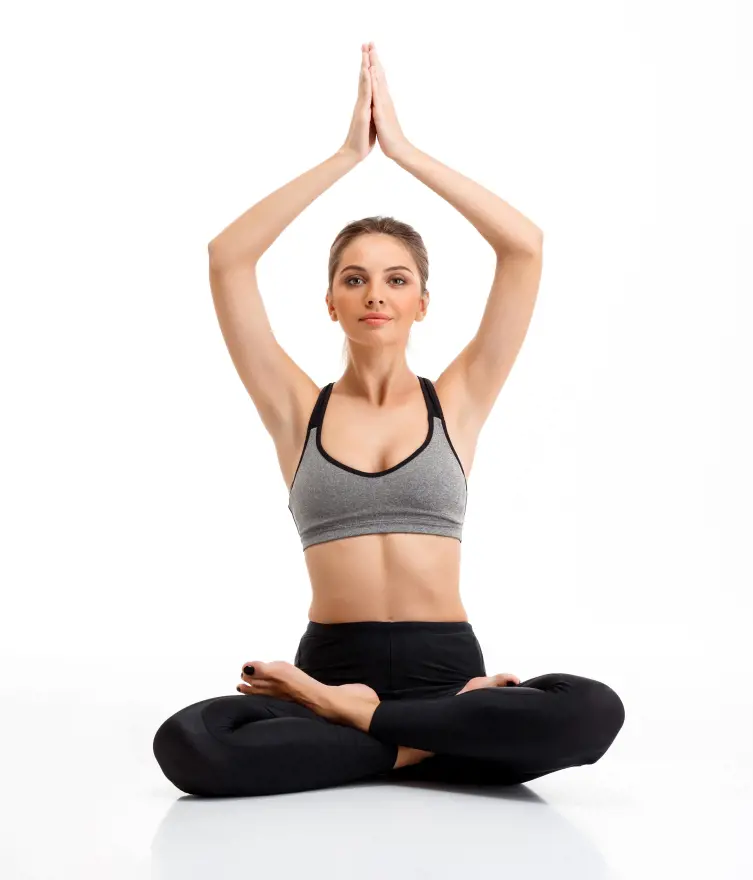
Yoga is an ancient practice that combines physical postures, breathing techniques, and meditation to improve overall health. It is performed on a mat and can be done at any time, with many people choosing mornings for a fresh start. The practice offers various health benefits, such as increased flexibility, strength, and balance.
Different types of yoga focus on specific aspects, providing a range of advantages. These include stress reduction, improved mental focus, and enhanced relaxation. Learning about the 14 types of yoga can help you find a practice that aligns with your health and fitness goals, offering a holistic approach to well-being.
1. Hatha Yoga
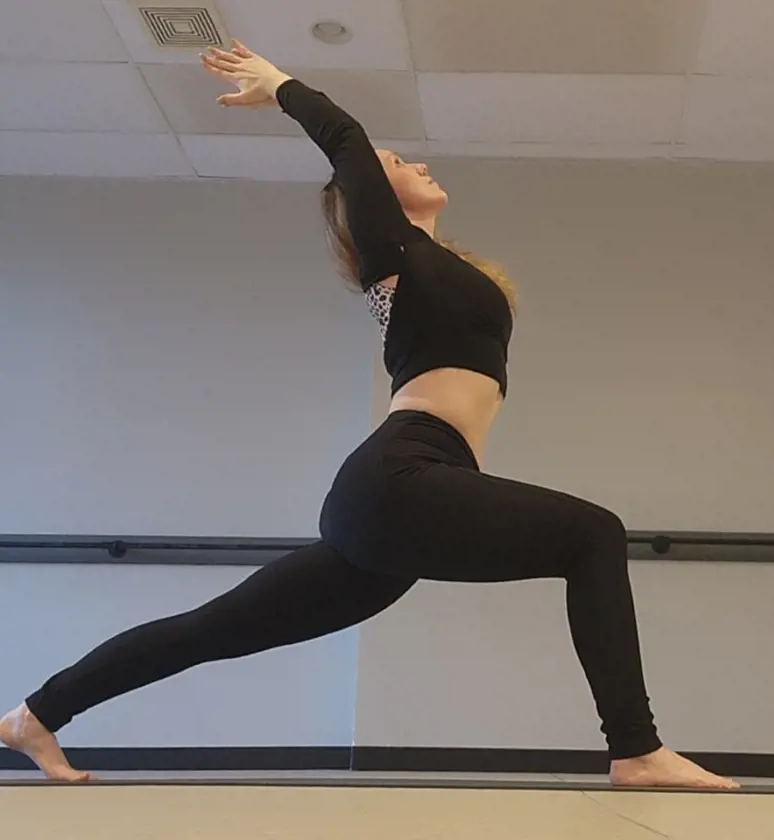
Hatha Yoga is a traditional form of yoga that combines physical postures and breathing techniques (pranayama). This yoga focuses on creating a balance between body and mind through the practice of these postures and breath control. The Hatha pose is often considered a foundational and accessible style, making it suitable for beginners.
To do Hatha yoga, start by finding a quiet space. Begin with gentle stretches, focusing on breathing deeply. Practice basic poses like Mountain and Downward Dog. Move slowly and listen to your body. Some of the benefits of performing this pose are:
- Builds strength.
- Enhances flexibility and balance.
- Promotes relaxation.
2. Kundalini Yoga
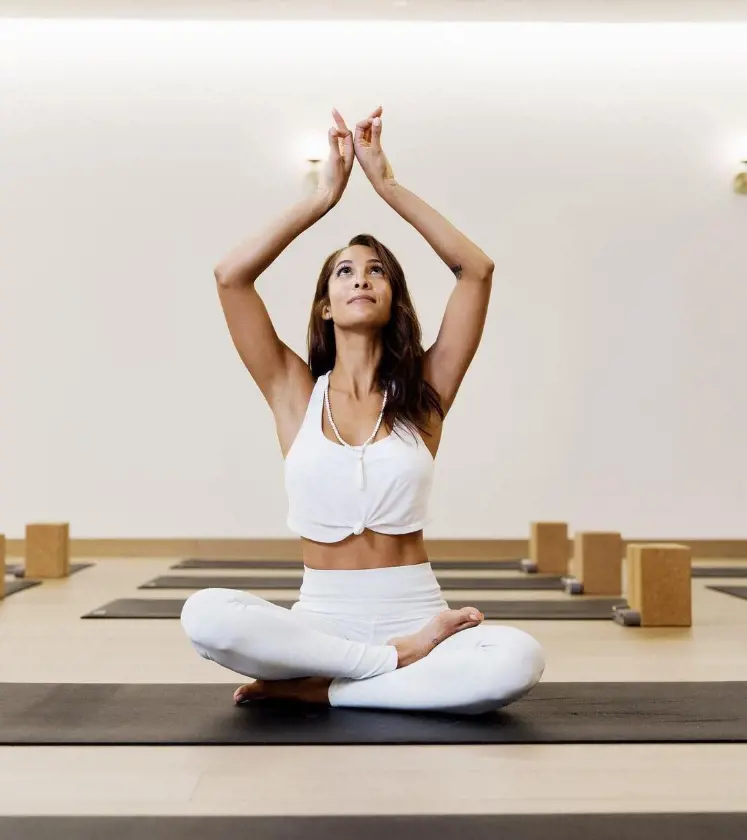
Kundalini yoga's dynamic practices are designed to awaken higher consciousness, promoting deeper connection to one's inner self. This unique form of yoga blends physical postures, breathwork, and meditation to activate and harness the dormant spiritual energy at the base of the spine, known as Kundalini.
Kundalini yoga incorporates chanting, or mantra repetition, enhancing spiritual experiences by focusing the mind and impacting the body's energy centers. This practice utilizes sound to create a sacred atmosphere, aligning practitioners with their higher consciousness during sessions. Some of its benefits include:
- Heightens mental clarity and intuition.
- Boosts positive mood and outlook.
- Promotes emotional stability.
3. Bikram Yoga
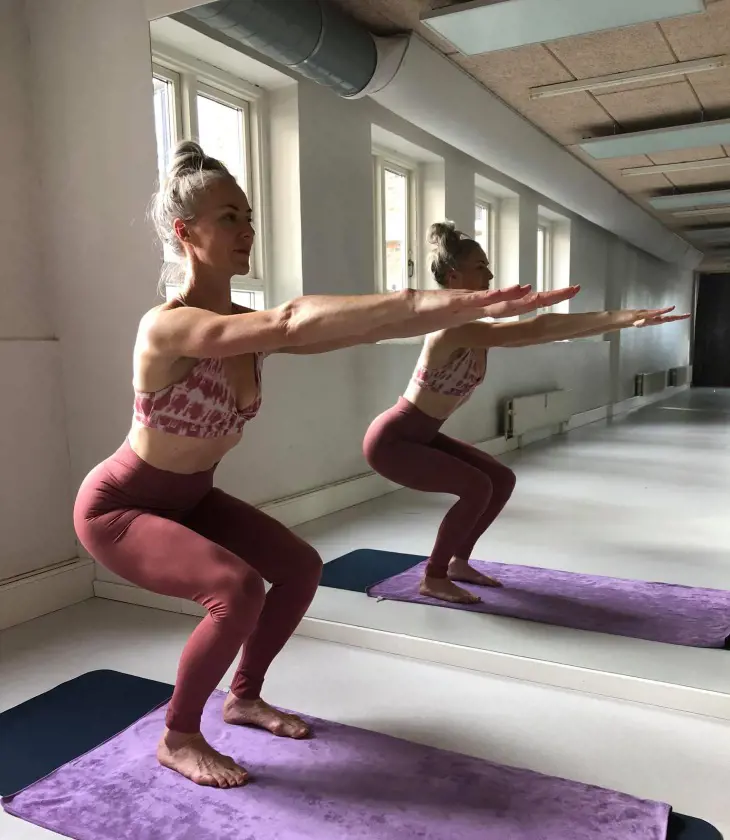
Bikram yoga is sometimes referred to as "hot yoga" due to its practice in a heated environment. It is characterized by a sequence of 26 postures, all performed in a room heated to a high temperature, typically around 105°F. The sequence strengthens muscles, joints, and internal organs, working on every part of your body.
In Bikram yoga, stand in a warm room, do 26 poses and two breath exercises. Begin with standing poses, sit briefly, then do backends. Remember to drink water, pay attention to how you feel, and talk to a professional if you're new to yoga or have health concerns. Some benefits of this practice include:
- Focuses on alignment.
- Improves posture.
- Detoxification through sweating.
4. Yin Yoga
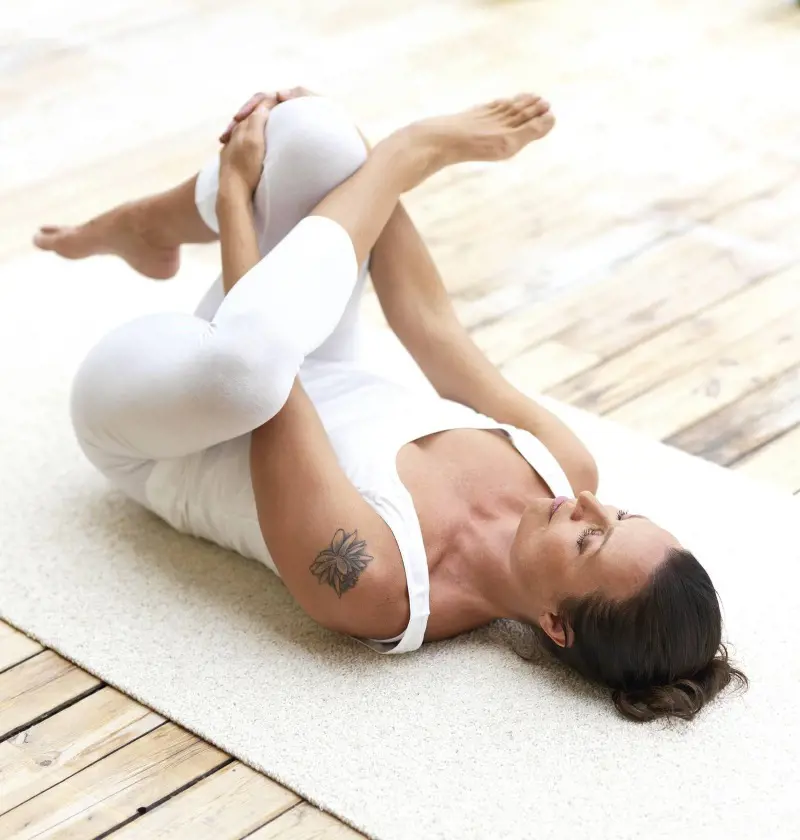
Yin is a slow and calming form of yoga that targets deep connective tissues like ligaments and fascia. It mainly focuses on the lower part of your body, such as the hips, pelvis, and lower spine. Perfect for evenings, this posture only requires minimal tools; a mat and possibly a cushion or block for support. And the best part is you can perform these yoga stretches every day.
In Yin yoga, you stay in poses for a long time, like 3 to 5 minutes. This helps stretch and strengthen your body's connections. It's different from fast yoga because it's slow and calming, making you think quietly. This helps connect your body and mind, making you more flexible and relaxed. Benefits of this yoga include:
- Improves joint mobility.
- Balances energy flow.
- Stimulates internal organs.
5. Iyengar Yoga
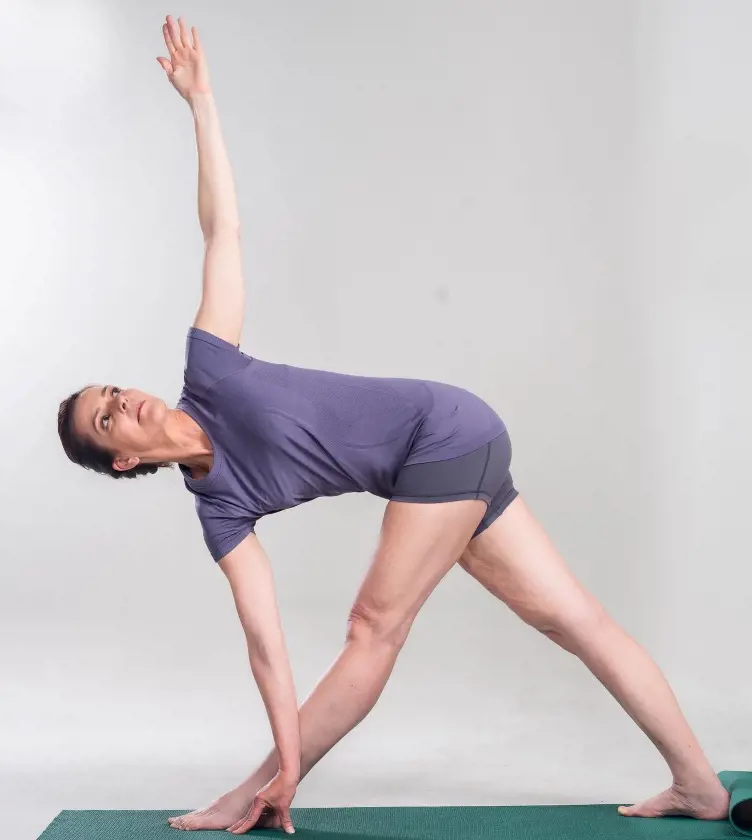
Iyengar yoga is known for its attention to detail and is suitable for individuals of all ages and physical conditions. Named after its founder, B.K.S. Iyengar, this method uses props such as belts, blocks, and blankets to assist practitioners in achieving the correct alignment and form.
To perform this stretch, begin with the Mountain pose. Align your body, engage muscles, and extend. Use props for support, move mindfully, and focus on your breath. Gradually progress to advanced asanas, adapting with props as needed. The benefits of this yoga are:
- Focuses on alignment.
- Improves posture.
- Helps with stress reduction.
6. Ashtanga Yoga
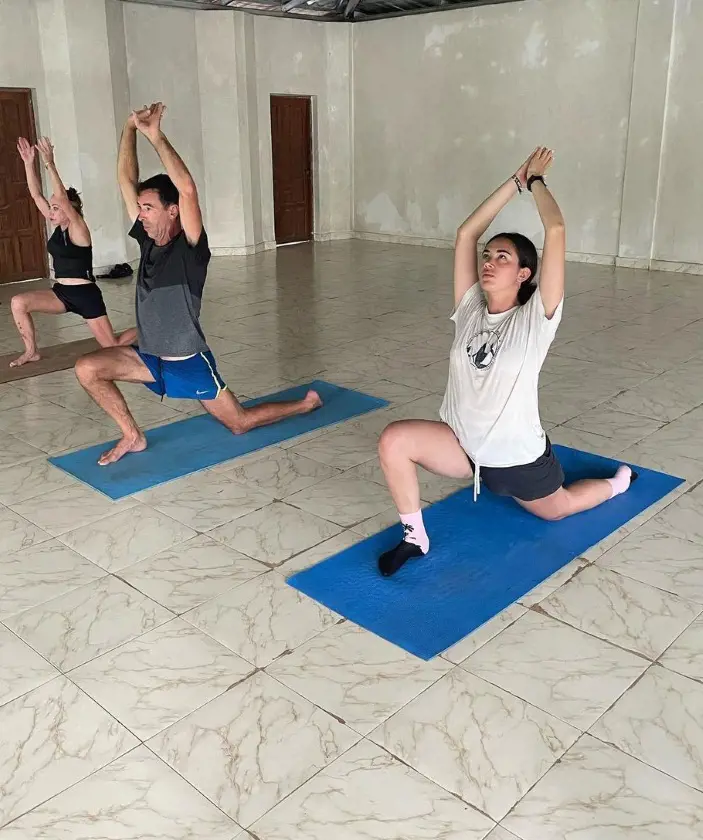
Ashtanga yoga particularly emphasizes the core muscles and these muscles include those of the abdomen and lower back. The practice involves a series of dynamic and physically demanding postures that engage various muscle groups throughout the body, boosting overall strength and stamina.
To practice this yoga, begin by standing tall. Inhale and reach your arms up; then exhale and bend forward. Inhale again, lifting halfway; exhale and either step or jump back to a plank. Lower down, inhale into Upward Dog, exhale moving into Downward Dog. Repeat, connecting breath with movement. Benefits of this pose include:
- Aids in weight reduction.
- Improves concentration.
- Promotes spiritual connection.
7. Vinyasa Yoga
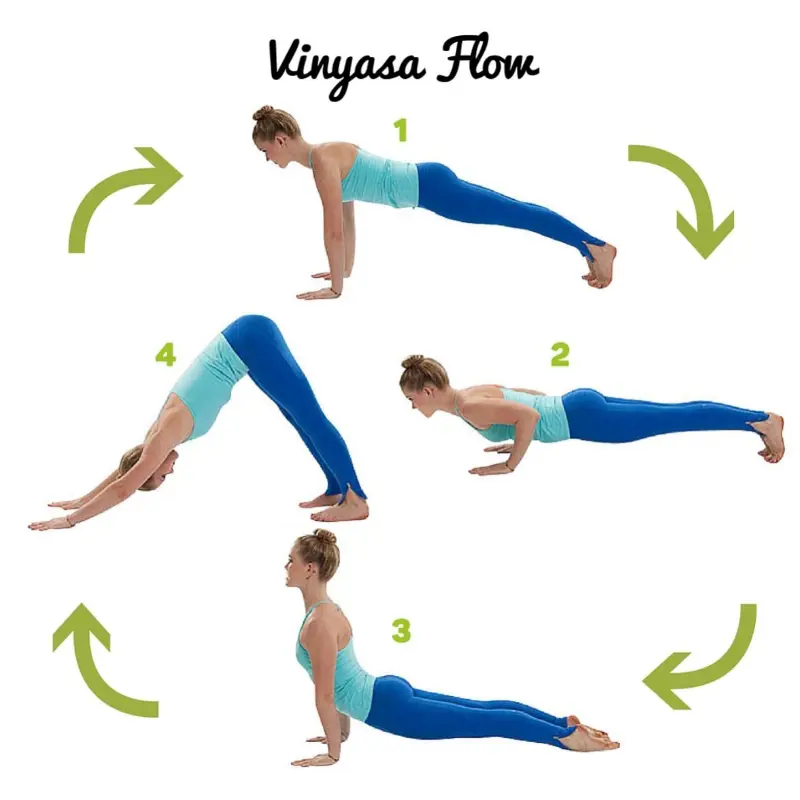
Vinyasa yoga is a dynamic and flowing practice that harmoniously integrates breath with movement. This style of yoga provides a rhythmic and energizing workout, promoting suppleness and mindfulness. It is suitable for individuals of various fitness levels and ages, offering a balanced and revitalizing experience.
To perform Vinyasa, start in the Mountain Pose, standing tall with arms reaching up as you inhale. Then, exhale and fold forward, allowing your hands to touch the floor. Inhale, lift your chest halfway into Cobra Pose. Exhale, push back to Downward-Facing Dog. Repeat these fluid steps 2-5 times. Benefits of this yoga are:
- Improves cardiovascular health.
- Builds strength.
- Tones muscles.
8. Restorative Yoga
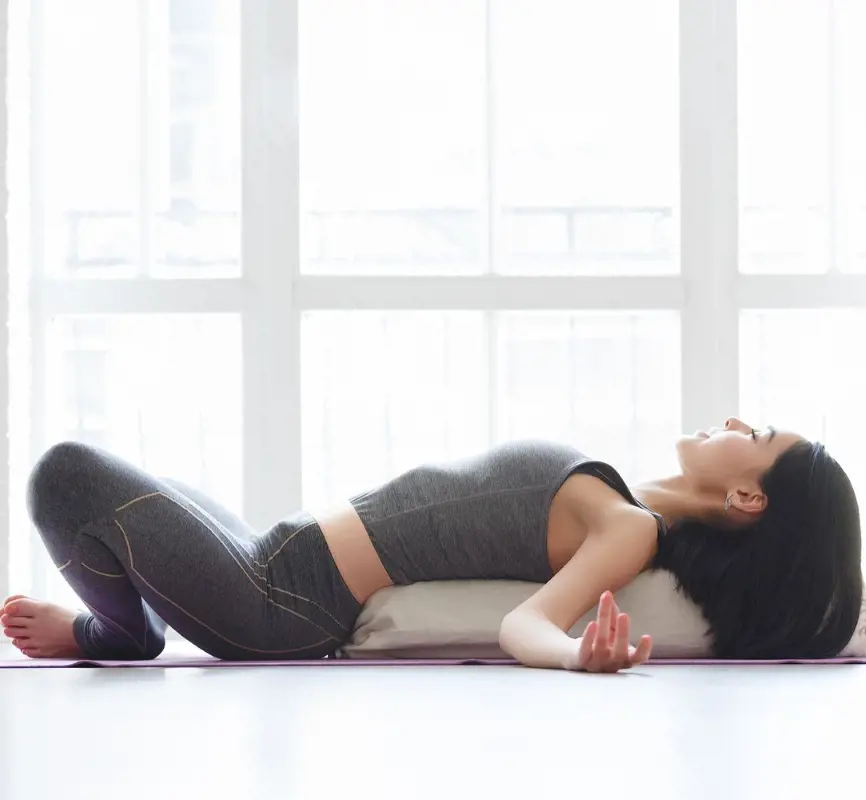
Restorative yoga involves gentle poses supported by props like blankets and bolsters. Ideal for easing lower back discomfort, it mainly targets tension release. With gentle poses, it creates a soothing experience, helping to alleviate pain and enhance the body's natural healing. It offers support for those seeking relief from lower back pain and stress.
To do Restorative yoga, use comfy props like blankets or bolsters. Sit or lie in gentle poses, supporting your body. Breathe slowly, focusing on relaxation. Hold each pose for a few minutes, letting go of tension. The benefits of practicing this pose are:
- Relieves stress.
- Promotes relaxation.
- Aids in healing.
9. Anusara Yoga
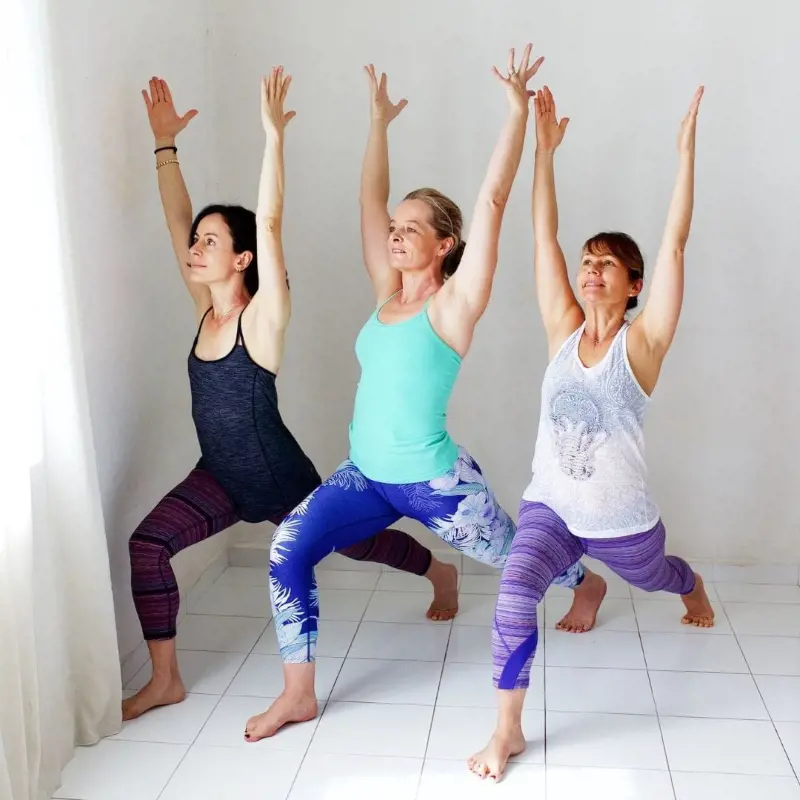
Anusara yoga focuses on aligning your body correctly in poses, promoting safety and energy flow. This yoga style is known for its positive philosophy, emphasizing joy and recognizing the goodness within. It combines physical postures with a heart-centered approach, making it a unique and holistic practice for both body and mind.
This yoga style is suitable for everyone, promoting both physical and mental well-being. If you enjoy a positive, heart-centered approach to yoga, consider including it in your daily fitness routine. It's always advisable to consult with a professional, particularly if you have any health concerns. Some of its benefits include:
- Improves alignment.
- Strengthens mind-body connection.
- Reduces stress.
10. Power Yoga
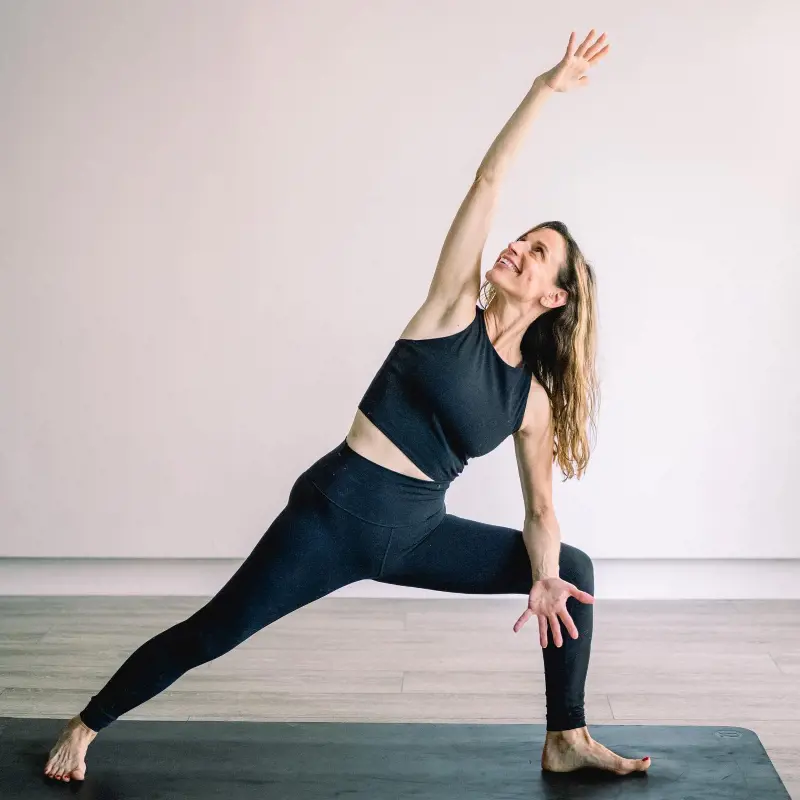
Power yoga is a dynamic form that emphasizes strength and cardio, targeting various muscle groups for overall fitness. While promoting muscle tone and endurance, it may not be as effective as traditional strength training for muscle building. It's great for fitness but isn't the primary choice for muscle growth.
Beginning with an invigorating warm-up to prepare the body, practitioners smoothly shift between poses, emphasizing strength and flexibility. The practice integrates cardio elements, promoting holistic well-being. A session typically concludes with a soothing cool-down and relaxation. Some advantages of Power yoga are:
- Boosts heart health.
- Aids weight management.
- Builds strength and stamina.
11. Yoga Nidra
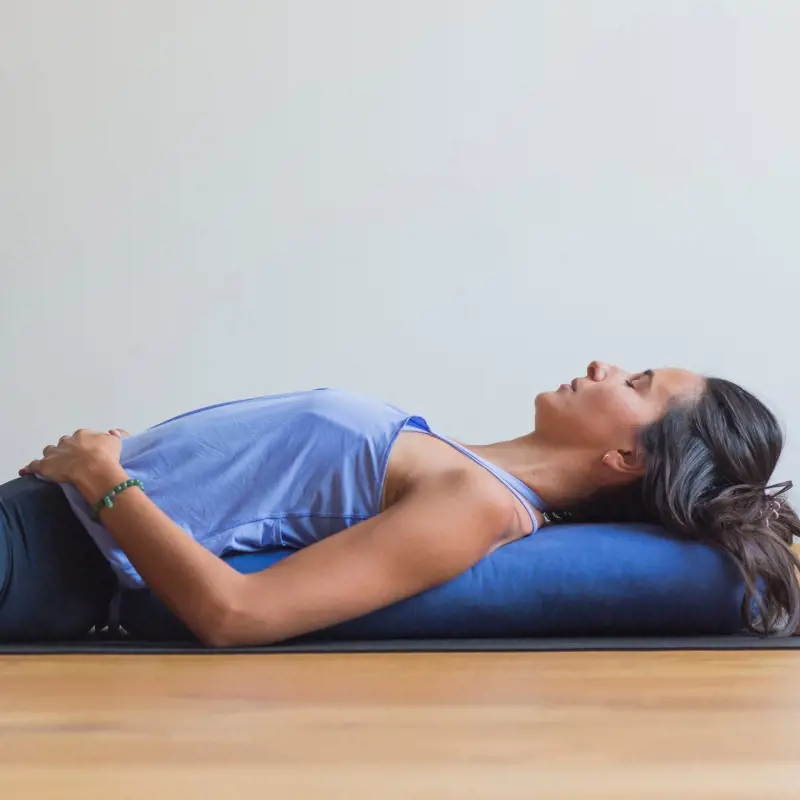
Yoga Nidra is a form of yoga, but it is distinct from the physical poses commonly associated with yoga (asanas). This practice aims to promote deep relaxation and is especially beneficial for anxiety and depression. During Yoga Nidra, you lie down, close your eyes, and follow verbal instructions.
Additionally, the guide leads you through body awareness, breath focus, and visualizations with the goal of reaching a state between wakefulness and sleep, fostering mental and emotional calmness. Some benefits of practicing this yoga nidra include:
- Reduces symptoms of post-traumatic stress disorder (PTSD).
- Improves quality of sleep.
- Supports emotional balance.
12. Acro Yoga
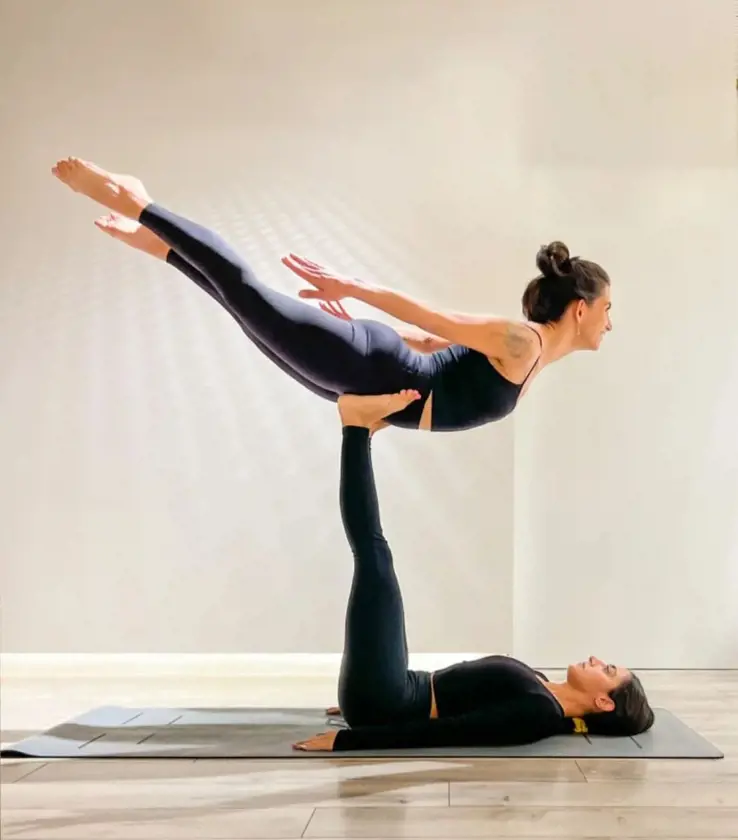
Acro is a collaborative form of yoga blending acrobatics and traditional poses. It cultivates strength and balance in the core, arms, and leg. Within this practice, partners assume roles as a supportive "base" on the ground and an elevated "flyer" performing poses on the base's feet or hands. It's an enjoyable and cooperative experience.
This practice emphasizes communication, trust, and connection between partners, incorporating poses where the flyer is lifted, balanced, or moved through the air. Acro cultivates coordination, teamwork, and playfulness, serving as a dynamic and engaging form of yoga that enriches both physical and interpersonal skills. Benefits of this yoga pose are:
- Promotes self-awareness.
- Encourages playfulness and joy.
- Strengthens core muscles.
13. Jivamukti Yoga
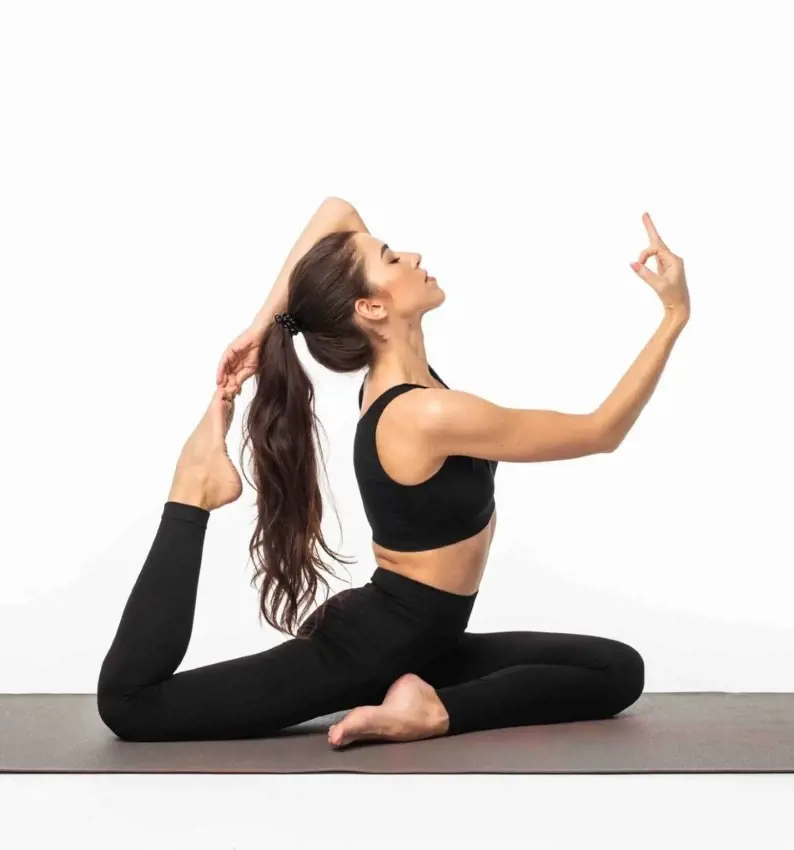
Jivamukti yoga, a modern style, skillfully integrates physical postures, meditation, and ethical values. This dynamic practice fosters spiritual awareness and supports a compassionate lifestyle, making it suitable for all levels. In classes, there is often an incorporation of music and chanting, contributing to a richer and more immersive experience.
Participants flow through standing, seated, and inverted poses in sequences. The focus is on environmental and ethical considerations, promoting a mindful and compassionate approach to life. This yoga brings together physical exercise with spiritual and ethical principles through regular practice. Some of the benefits include:
- Integrates physical postures with spiritual teaching.
- Promotes self-awareness.
- Boosts cardiovascular fitness.
14. Sivananda Yoga
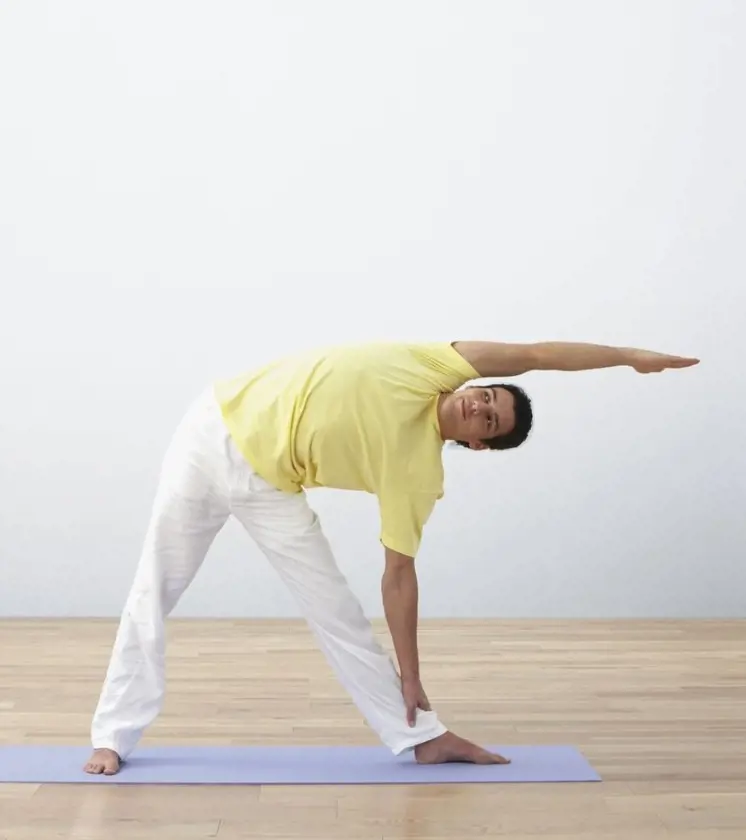
Sivananda yoga is a type of Hatha yoga that involves specific poses, breathing exercises (pranayama), and meditation. The practice emphasizes 12 core postures to promote physical strength, flexibility, and balance. Sivananda Yoga isn't just about exercise; it encourages a healthy lifestyle and inner peace.
During a session, participants move through a set sequence of poses, incorporating breathing techniques and moments of relaxation. This yoga style aims to create harmony in the body and mind, fostering overall well-being. Some of its benefits include:
- Emphasizes proper breathing.
- Expands energy levels.
- Encourages spiritual growth.
Recent posts
Yoga
Yoga
13 Breathing Techniques To Bring Calm And Relieve Anxiety
Practicing breathing techniques can be extremely helpful in soothing anxiety and bringing a sense of calm. They are easy to perform and provide a faster way to induce relaxation. However, with so many techniques out there, choosing the best ones can ...
Yoga
15 Health Benefits of Hot Yoga to Heat Up Your Fitness
Do you feel like you're stuck in a monotonous yoga routine? Ever wish for a yoga session that challenges your body to drip sweat? Imagine walking into a room filled with heat, where every move tests your strength, flexibility, and determination. If y...
Yoga
14 Awesome Yoga For Lower Back Pain
Lower back pain is a common complaint, impacting millions of people worldwide. It can result from various factors, including poor posture, muscle imbalances, and injuries. Fortunately, yoga offers a gentle and effective approach to alleviating pain a...
Yoga
15 Yoga For Beginners To Mindful Well Being
Yoga isn't just about doing cool poses that you see on TV or in advertisements. It's way more! Besides the physical exercises (called asanas), yoga includes self-disciplinary practices, such as meditation, chanting, mantra, breath work, prayer, ritua...
Yoga
15 Yoga Stretches You Can Do Everyday
People have been practicing yoga since ancient times, combining physical postures, breathing exercises, and meditation. These routines offer many benefits for both your physical and mental health. They include improved flexibility, strength, and bala...
Yoga
17 Best Yoga Poses For A Couple
Yoga poses for two people can help you discover the power of shared connection through the ancient art of yoga. Whether you're looking to strengthen your relationship, build trust, or simply add an exciting twist to your practice, practicing yoga wit...

